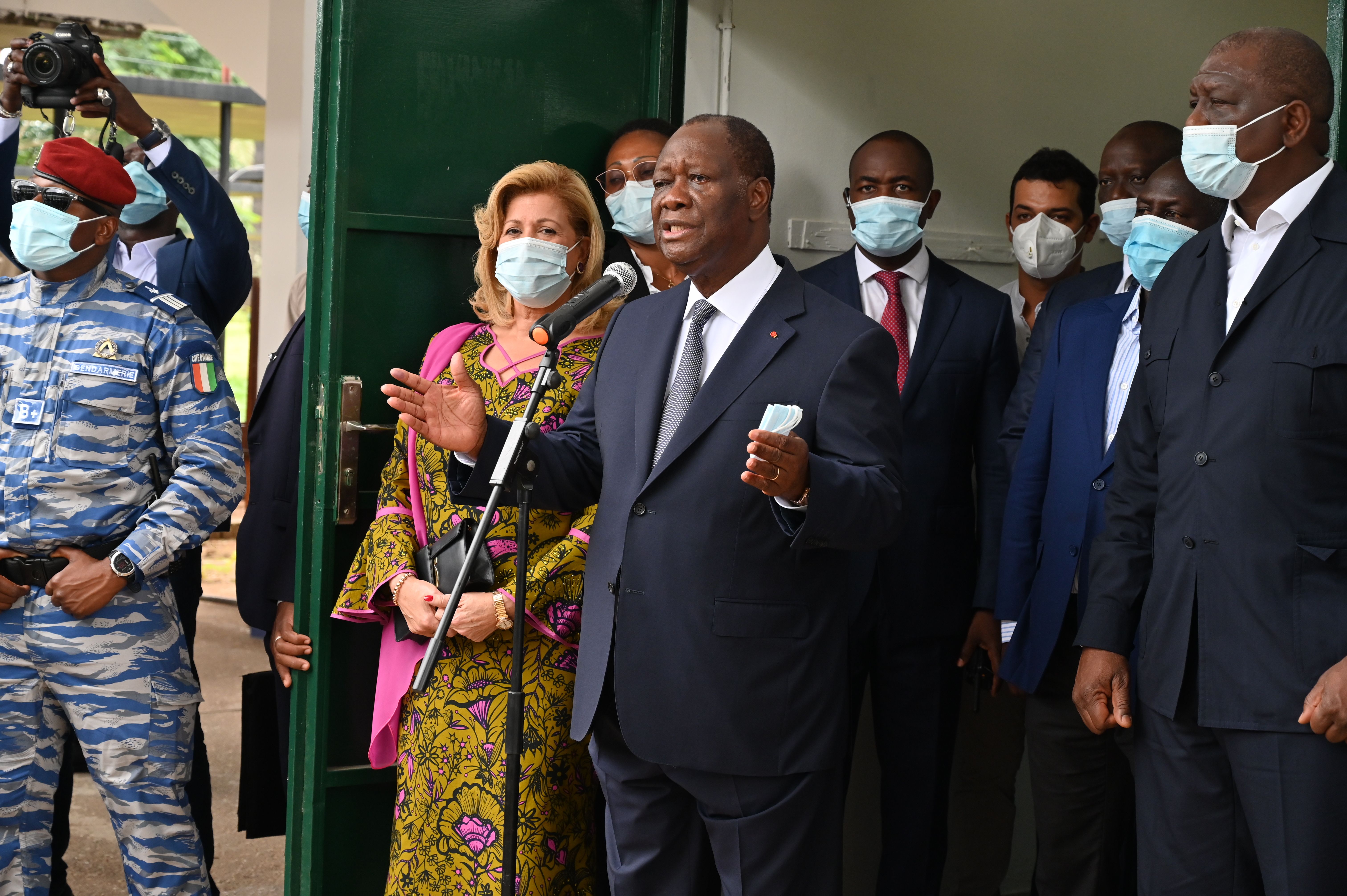U.S. slams Côte d'Ivoire's leaders for failing to 'show commitment to the democratic process' just hours after Trump falsely declared victory


A free daily email with the biggest news stories of the day – and the best features from TheWeek.com
You are now subscribed
Your newsletter sign-up was successful
Has the United States ever heard that old saying about the pot calling the kettle black? Because things sure got awkward on Wednesday morning, when the U.S. Embassy condemned the presidential election in West Africa's Côte d'Ivoire for being undemocratic — shortly after America's own leader faced such accusations domestically.
On the surface, there is little comparison between the United States' elections, which are by all expert accounts fair and legitimate, and the situation in Côte d'Ivoire, where President Alassane Ouattara won a third term with 94.27 percent of the vote. Tragically, violent clashes in the nation over the election have also resulted in at least a dozen deaths, with thousands fleeing the country, the United Nations has reported. In issuing its condemnation on Wednesday, the United States joined a chorus of international voices decrying the violence and breakdown of democratic processes in Côte d'Ivoire.
But one line in particular stood out in the U.S. statement: "The United States calls on Côte d'Ivoire's leaders to show commitment to the democratic process and the rule of law." The finger-wagging might seem a bit hypocritical, particularly after President Trump falsely declared victory in states he hasn't yet won, baselessly raised doubts about the integrity of the election, and threatened to go to the Supreme Court to stop the counting of legitimately-cast ballots.
The Week
Escape your echo chamber. Get the facts behind the news, plus analysis from multiple perspectives.

Sign up for The Week's Free Newsletters
From our morning news briefing to a weekly Good News Newsletter, get the best of The Week delivered directly to your inbox.
From our morning news briefing to a weekly Good News Newsletter, get the best of The Week delivered directly to your inbox.
Read the full U.S. statement, shared by The Washington Post's West Africa bureau chief Danielle Paquette, below. Jeva Lange
A free daily email with the biggest news stories of the day – and the best features from TheWeek.com
Jeva Lange was the executive editor at TheWeek.com. She formerly served as The Week's deputy editor and culture critic. She is also a contributor to Screen Slate, and her writing has appeared in The New York Daily News, The Awl, Vice, and Gothamist, among other publications. Jeva lives in New York City. Follow her on Twitter.
-
 The Week Unwrapped: Have televised confessions quelled protests in Iran?
The Week Unwrapped: Have televised confessions quelled protests in Iran?Podcast Plus, why has Elon Musk turned from Mars to the Moon? And will the BBC prove to be a puzzles champ?
-
 The week’s best photos
The week’s best photosIn Pictures An Andean god, a rogue squirrel, and more
-
 ‘Zero trimester’ influencers believe a healthy pregnancy is a choice
‘Zero trimester’ influencers believe a healthy pregnancy is a choiceThe Explainer Is prepping during the preconception period the answer for hopeful couples?
-
 Epstein files topple law CEO, roil UK government
Epstein files topple law CEO, roil UK governmentSpeed Read Peter Mandelson, Britain’s former ambassador to the US, is caught up in the scandal
-
 Iran and US prepare to meet after skirmishes
Iran and US prepare to meet after skirmishesSpeed Read The incident comes amid heightened tensions in the Middle East
-
 EU and India clinch trade pact amid US tariff war
EU and India clinch trade pact amid US tariff warSpeed Read The agreement will slash tariffs on most goods over the next decade
-
 Israel retrieves final hostage’s body from Gaza
Israel retrieves final hostage’s body from GazaSpeed Read The 24-year-old police officer was killed during the initial Hamas attack
-
 China’s Xi targets top general in growing purge
China’s Xi targets top general in growing purgeSpeed Read Zhang Youxia is being investigated over ‘grave violations’ of the law
-
 Panama and Canada are negotiating over a crucial copper mine
Panama and Canada are negotiating over a crucial copper mineIn the Spotlight Panama is set to make a final decision on the mine this summer
-
 Why Greenland’s natural resources are nearly impossible to mine
Why Greenland’s natural resources are nearly impossible to mineThe Explainer The country’s natural landscape makes the task extremely difficult
-
 Iran cuts internet as protests escalate
Iran cuts internet as protests escalateSpeed Reada Government buildings across the country have been set on fire
